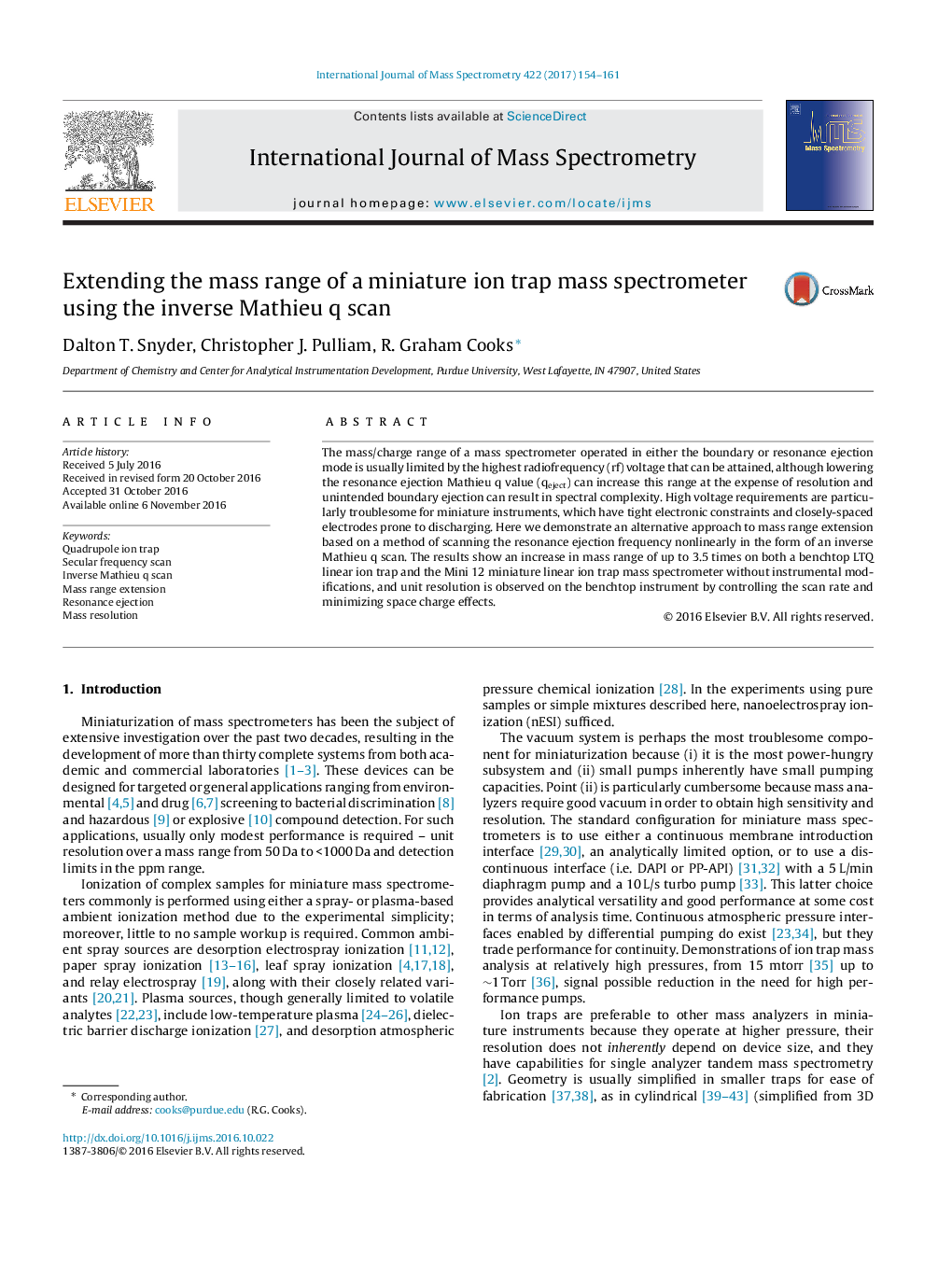| Article ID | Journal | Published Year | Pages | File Type |
|---|---|---|---|---|
| 7603346 | International Journal of Mass Spectrometry | 2017 | 8 Pages |
Abstract
The mass/charge range of a mass spectrometer operated in either the boundary or resonance ejection mode is usually limited by the highest radiofrequency (rf) voltage that can be attained, although lowering the resonance ejection Mathieu q value (qeject) can increase this range at the expense of resolution and unintended boundary ejection can result in spectral complexity. High voltage requirements are particularly troublesome for miniature instruments, which have tight electronic constraints and closely-spaced electrodes prone to discharging. Here we demonstrate an alternative approach to mass range extension based on a method of scanning the resonance ejection frequency nonlinearly in the form of an inverse Mathieu q scan. The results show an increase in mass range of up to 3.5 times on both a benchtop LTQ linear ion trap and the Mini 12 miniature linear ion trap mass spectrometer without instrumental modifications, and unit resolution is observed on the benchtop instrument by controlling the scan rate and minimizing space charge effects.
Related Topics
Physical Sciences and Engineering
Chemistry
Analytical Chemistry
Authors
Dalton T. Snyder, Christopher J. Pulliam, R. Graham Cooks,
